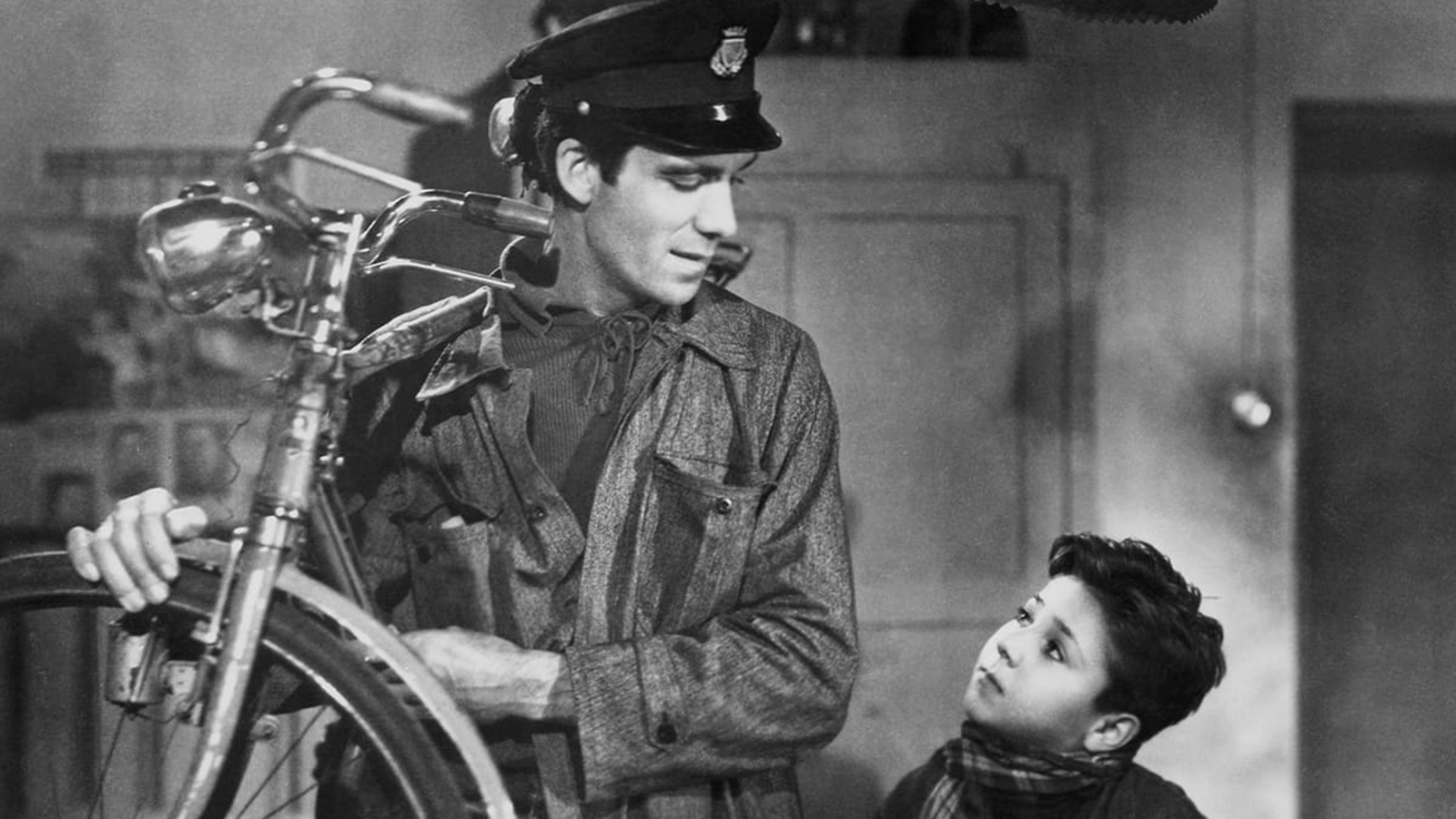Desperate people queue for jobs to sustain them for the day, then walk empty barren streets pockmarked with the calling cards of war. The reek of desperation pervades whilst a sluggish bureaucracy prevails over the bewildered and suspicious populus. Such are the scenes in Covid-19 Brit… ahem, Rome, in Vittorio De Sica’s much vaunted Neo-Realist classic in which a bicycle is stolen and a father and son endeavour to retrieve it. The father, played by Lamberto Maggiorani and his son, the cherubic Enzo Staiola, provide a relatable structure that, despite being almost transparent in its messaging, is effective because of the authenticity De Sica was able to reach within his naturalistic leads.
This is no fairytale, and to perceive it as such is to belittle its importance and dilute its socio-economic critique. What is most striking, when viewed through a modern lens, is not the lack of safeguarding for the young Bruno, but the complete lack of redeeming features of Antonio, his father. Firstly, he is barely paying attention when offered the job which required the bike, then lies about having one to prevent someone in the gathered throng securing the role.
More egregiously, he ignores his wife’s sacrifices, as she uses part of her dowry to get the bicycle out of the pawn shop in the first place. By the time the bike is stolen, he has already prevented her paying a debt to a clairvoyant and entrusted the bicycle to a boy on the street. It is so refreshing to see a flawed and actually quite unlikable human being at the centre of one of the many films on which critics bestow great historical importance. It currently sits at number thirty-three on the BFI all-time list between Taxi Driver and The General, and in more suitable company it could not be.
The search for a stolen bicycle becomes a metaphor for the pursuit of dignity and stability in the chaotic lives of the poor who had survived the Second World War. The scene in which Antonio actually reports the crime to the police is effective in that the response of the State (to what is a minor civic infraction) fails to comprehend the profound and holistic effects the loss means to him and his family. To the senior policeman with whom he speaks it is merely an object, but for Antonio it is a gateway to the possibility of another life.
For those who feel that a story about trying to find a stolen bike is somehow underwhelming for a supposed classic film, they misinterpret the meaning of the scenes with Antonio and Bruno. By focusing the bulk of the scenes upon an innocent little boy, the many screenwriters are highlighting (using innocence to contextualise) the cruel and complicated post war situation for millions.
Available to watch now on Amazon Prime


Comments